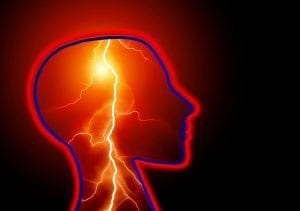Lennox-Gastaut Syndrome
What is Lennox-Gastaut syndrome (LGS)?
Lennox–Gastaut syndrome (LGS) is a rare and severe form of epilepsy which begins in childhood. Children with LGS have frequent and many different types of seizures. LGS is responsible for estimated five percent of childhood epilepsy and appears usually between the ages of 2 and 6.
What are the symptoms of LGS?
The most prevalent symptom of LGS is severe and frequent seizures. Three types of seizures experienced include:
- Atonic seizures, which are characterized by sudden loss of muscle tone causing the individual to collapse
- Tonic seizures, which cause muscle stiffening and are most common when the individual is asleep
- Absence seizures, which are prolonged episodes of seizure activity when the individual blankly stares, blinks rapidly, and nods head
Other symptoms related to LGS and frequent seizure activity include:
- Learning and developmental delays
- Injuries from falls
- Behavioral problems which at times can develop into psychotic episodes
What causes LGS?
In many cases, the cause of LGS is unknown. Some of the known causes of LGS include:
- Lack of oxygen at birth
- Severe brain injury to child during pregnancy or at birth
- Low birth weight
- Premature birth
- Bran development problems during fetal development
- Severe brain infections such as encephalitis and meningitis
Are there treatment options available for LGS?
Treatment options for LGS include:
- Medications to treat the severity and frequency of seizure activity. Many times, multiple medications are needed to have an effect
- Special diets such as high fat, low carbohydrate diet
- Surgery to place a nerve stimulator which sends electric impulses to the vagus nerve
- In the most severe cases, corpus collosotomy surgery can be performed. This procedure separates the right and left sides of the brain to stop the seizure activity from passing from one side of the brain to the other
It’s important to talk with your doctor about the risks and benefits of each treatment option. In more severe cases, emergency medical care is necessary because LGS can be fatal if it goes without treatment.
Where can I find more information about LGS?
Lennox-Gastaut Syndrome Articles

Caroline Menzia’s Caregiver Story with FOXG1 Syndrome

Rare Community Profiles: Mahnaz Asgharnejad Discusses Data on Soticlestat for LGS and Dravet Syndrome

FDA Grants Orphan Drug Designation to Ganaxolone for Lennox-Gastaut Syndrome

Real-World Data Shows that Epidiolex Significantly Reduces Seizure Frequency in LGS and Dravet Syndrome

“A Rare Gem”: Savannah’s Story Spreads Ogden Syndrome Awareness (Pt. 1)

Soticlestat Reduces Seizure Frequency in Dravet Syndrome, Study Shows

Boy with Lennox-Gastaut Syndrome Struggles to Get Life-Saving Medicinal Cannabis




